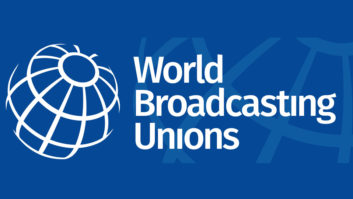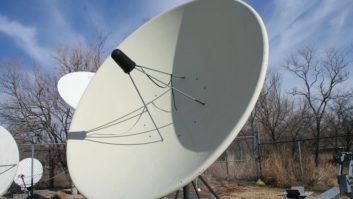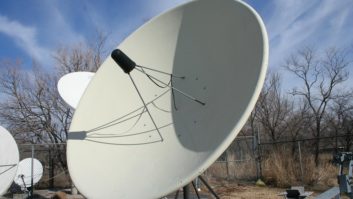The World Broadcasting Unions is calling on satellite service providers and government regulators to protect the availability of the upper part of the C-Band spectrum, where the band has been allocated to satellite services and is used to provide broadcasting services.
 Drafted by the WBU International Media Connectivity Group (WBU-IMCG) Intentional Interference to Satellite Services Working Group (IISS), the proposal specifies that while WBU “welcomes technological change and the benefits it brings to both audiences and broadcasters, many tried and tested technologies continue to deliver reliable and efficient services for WBU members.”
Drafted by the WBU International Media Connectivity Group (WBU-IMCG) Intentional Interference to Satellite Services Working Group (IISS), the proposal specifies that while WBU “welcomes technological change and the benefits it brings to both audiences and broadcasters, many tried and tested technologies continue to deliver reliable and efficient services for WBU members.”
WBU explains that C-Band FSS downlink frequencies between 3,400–4,200 MHz, have been and are extensively used worldwide by WBU members for Fixed Satellite Services (FSS) applications and will continue to be used for the foreseeable future, in particular above 3,600 MHz.
[Read: NABA and EBU Issue Cyber Security Recommendations]
But, it says, due to the fragile nature of the FSS downlink sites, WBU members have “experienced serious interference to services where this spectrum has been opened up to other users.” Moreover, it points out that because few countries require these receive-only downlink sites to be licensed or registered, little recourse is available, and WBU members should thus register their downlink sites.
The organization also argues that potential allocation of C Band FSS spectrum to mobile services would “create chaos to the economics of broadcasting by satellite, potentially interrupting services to audiences around the world.”
Specifically, it points to the use of C-Band in tropical regions, which it says is “critical for satellite services in these regions as it suffers less from the attenuation effects of heavy rainfall than higher frequency bands.”
In producing the proposed position, WBU says the group referenced and updated the 2015 WBU-ISOG position on C Band. WBU-IMCG was previously known as the WBU International Satellite Operations Group (WBU- ISOG).







